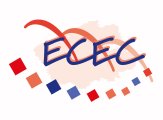
Conference Themes
The 17th Annual European Concurrent Engineering Conference 2010 is structured around the following ten major topics: (To submit a paper click on the links below)
- 1.1 Organizational influences of e-business
- 1.2 B2B business models for inter-organizational CE
- 1.3 Migration to e-business based CE
- 1.4 E-business applications for CE
- 1.5 B2B portals for CE
- 1.6 Emerging standards (e.g. XML, UML)
- 1.7 E-Procurement, E-Supply, E-Engineering, ....
- 2.1 Principles of CE
- 2.2 Multi-disciplined team-working and project team organisation
- 2.3 Global lean product development and international collaboration
- 2.4 Life-cycle cost and quality
- 2.5 Business process re-engineering and outsourcing
- 2.6 Supply chain management
- 2.7 Measurement of profitability by the introduction of CE
- 3.1 Digital mock-up
- 3.2 Virtual prototyping
- 3.3 Rapid prototyping
- 3.4 Synthetic environments and simulation on the factory floor
- 3.5 Reverse engineering
- 3.6 Assembly and disassembly
- 3.7 High precision manufacturing
- 3.8 Intelligent Manufacturing
- 3.8 Sensor and robot assisted machining
4.Formal Methods, Techniques and Design
- 4.1 Quality Function Deployment
- 4.2 Total Quality Management
- 4.3 Global Optimization Techniques and Hybrid Approaches
- 4.4 Lean design, Value Driven Design, Knowledge Driven Design
5.Engineering of Embedded Systems
- 5.1 HW/SW C-Design
- 5.2 System Development Process
- 5.3 Specification Languages
6 Engineering data management and information modeling
- 6.1 Integration of geometrical data and product definition
- 6.2 Product data interchange (PDI) and standards
- 6.3 Data handling, distribution and transformation
- 6.4 Data version control and management
- 6.5 Corporate technical memory
- 6.6 Design rationale and intent
- 6.7 Concurrent Design Model CDF-IDM
- 6.8 Open Concurrent Design Server
7 Engineering Process Management and Modelling
- 7.1 Process planning in continuous, discrete and hybrid processes
- 7.2 Process modeling, monitoring and control
- 7.3 Diagnostics and maintenance
- 7.4 Automated inspection and quality control
- 7.5 Production planning, scheduling and control
- 7.6 CE metrics
- 7.7 CE process planning, scheduling and simulation
- 7.8 Workflow-management in CE
- 7.9 Project and team coordination
8 Collaborative CE environments for virtual teams
- 8.1 Cooperative problem solving
- 8.2 CSCW methods and tools
- 8.3 Information and application sharing
- 8.4 Computer-based video and audio conferencing and consulting using Smart Boards
- 8.5 Conflict resolution techniques
- 8.6 Constraint management
- 8.7 Negotiation, blackboard and agent-based architecture
- 8.8 CORBA based environments and integrated frameworks
- 8.9 Architectures for building CE systems
- 8.10 CE languages and tools
- 8.11 Distributed computing environments
- 8.12 WWW based CE systems
- 8.13 Mobile CE systems
- 8.14 Networking and Distribution in CE
- 8.15 Set Based Concurrent Engineering
9 CE Enhanced Lean Manufacturing
- 9.1 Work Standardization
- 9.2 5S Workplace Organization
- 9.3 Visual Controls
- 9.4 Batch Size Reduction
- 9.5 Points of Use Storage
- 9.6 Quality at the Source
- 9.7 Workflow Practice
- 9.8 Improved Information and Product Flow
- 9.9 Cellular Manufacturing
- 9.10 Pull & Synchronous Scheduling
- 9.11 Six Sigma & Total Quality
- 9.12 Rapid Setup
- 9.13 Work Teams for Cell Management & Process Improvement
- 9.14 Simplified scheduling and Kanban inventory management (the Toyota Model)
- 9.15 Lean PD Assessment Tools
10 Practical applications and experiences
- 10.1 Practical solutions
- 10.2 Systematic guide-lines
- 10.3 Pitfalls and success stories
- 10.4 Case studies, pilot projects and experiments in aerospace, shipbuilding etc..











